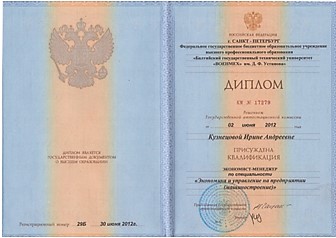Main page
Institute of Joint Educational Programs
Institute of Joint Educational Programs
IJEP (ИСОП)
The modern development of technology and technology dictate new requirements for the level and content of graduate training. Today, learning is built around learning communities and the wide interaction of various scientific schools, expanding access beyond time and space, and contributing to increased efficiency. Based on these trends, international scientific and academic communities are being created that contribute to the expansion of ties, the development of integration processes in the scientific and educational sphere, and the improvement of the quality of graduate training.
In order to implement the Memorandum of Universities of the Russian Federation and the Kyrgyz Republic, the protocol "On the establishment of the Russian-Kyrgyz Consortium of Technical Universities" between the Ministry of Education and Science of the Russian Federation and the Ministry of Education and Science of the Kyrgyz Republic and on the basis of the decision of the Academic Council of KSTU dated October 31, 2012 on the basis of the faculty of MPEI-KSTU and the project implementation department of BSTU -KSTU On January 2, 2013, by order of the rector No. 1/02, the Institute of Joint Educational Programs (IJEP) was established.
The Institute of Joint Educational Programs (IJEP) is a structural subdivision of KSTU. I. Razzakova. The main goal is to obtain a quality education for students, using mobility and the possibility of obtaining education at several universities under joint programs.
Joint educational programs (JEP) operate on the basis of agreements concluded between KSTU and partner universities.
For the period since 2013, within the framework of the signed Agreements on JEP:
in the areas of bachelor's degree - 49 programs,
in the areas of specialty - 3 programs,
in the areas of magistracy - 33 programs.
The total number of areas of training for JEP is 28.
Currently, under joint educational programs, students are studying in 17 areas of training.
Goals of joint educational programs
-
The main goal is to obtain a quality education for students, using mobility and the possibility of obtaining education at several universities under joint programs.
-
Expansion of scientific, technical and humanitarian ties between countries;
-
Promoting the internationalization of universities;
-
Development of integration processes in education.
Expanding opportunities for young people to receive high-quality modern education, and for teachers and scientists to develop scientific contacts.
Tasks of joint educational programs
To achieve these goals, it is necessary to solve the following tasks:
-
Formation of modern educational programs for the most significant areas of personnel training;
-
Advanced training of the teaching staff of technical universities;
-
Increase in scientific and academic cooperation, expansion of academic mobility;
-
Introduction of modern educational methods and technologies;
-
Preparation of students by the efforts of several partner universities.
Structure of joint educational programs
Education of students in the IJEP is conducted according to the curricula agreed between the partner universities.
Student education is organized by two partner universities at equal intervals of study at each partner university:
-
for bachelors, training begins at KSTU with subsequent transfer to a partner university (according to the 2 + 2 scheme),
-
for masters, training begins at a Russian university and ends at KSTU (according to the 1 + 1 scheme).
The learning outcomes at the partner university are accordingly recognized by the second partner university.
The defense is carried out in a joint attestation commission, which is formed from the staff of the departments of both universities.
Upon graduation, graduates have the opportunity to receive two diplomas: from the Russian Federation and KSTU. I. Razzakov of the Kyrgyz Republic.
Diploma of Higher Education Kyrgyz Republic
Diploma of Higher Education Russian Federation
Международные проекты по СОП
- Российско-Кыргызскиий консорциум технических университетов (РККТУ);
- Университет шанхайской организации сотрудничества (УШОС);
- Сетевой университет стран независимых государств (СУ СНГ);
- Ассоциация азиатских университетов (ААУ);
- Международная образовательная сеть «СИНЕРГИЯ».








